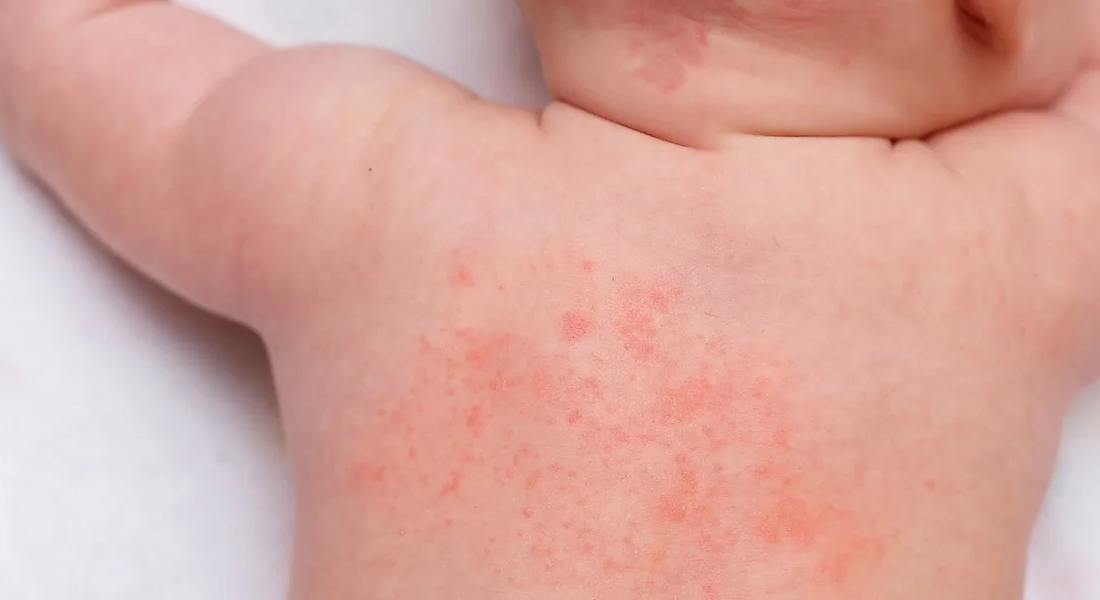Understanding Eczema: Symptoms and Treatment Options for Long-Term Relief
By:
Kevin Chong
On
31/10/2024Reading time:
5 min
Summary:
Eczema is a common skin condition that affects millions of people worldwide. It can be uncomfortable, frustrating, and sometimes difficult to manage, especially during flare-ups. While there are many treatment options available, finding the right balance between short-term relief and long-term management is crucial for anyone dealing with this condition. In this blog, we’ll explore what eczema is, its symptoms, and how it can be treated—highlighting the importance of natural, gentle solutions for long-term care while acknowledging that steroid creams can be useful during severe flare-ups.

What Is Eczema?
Eczema, also known as atopic dermatitis, is a chronic skin condition that causes the skin to become inflamed, red, itchy, and dry. It usually develops in early childhood but can affect people of any age. Eczema is often linked to a weakened skin barrier, which makes the skin more prone to irritation from environmental factors, allergens, and even stress. People with eczema tend to have sensitive skin that reacts easily to triggers, making flare-ups common.
Eczema can occur anywhere on the body but is most often found on the face, hands, elbows, and knees. The condition tends to come and go, with periods of remission and flare-ups, which can vary in intensity from mild irritation to severe inflammation.
Symptoms of Eczema
The symptoms of eczema can vary from person to person, but the most common signs include:
Dry, flaky skin: The skin may feel rough and dry, often with visible scaling or flaking.
Redness and inflammation: Affected areas of the skin can become red, swollen, and inflamed.
Itching: Itching is one of the most uncomfortable symptoms of eczema and can range from mild to intense.
Rashes or bumps: Eczema can cause small, raised bumps that can ooze or crust over if scratched.
Thickened or leathery skin: Over time, constant scratching or irritation can cause the skin to thicken and become tougher (a condition known as lichenification).
Treatment Options for Eczema
Managing eczema involves both relieving symptoms during flare-ups and preventing future outbreaks. While there’s no cure for eczema, several treatment options can help keep symptoms under control.
1. Steroid Creams for Severe Flare-Ups
When eczema flare-ups become severe, topical steroid creams (corticosteroids) are often prescribed by doctors to reduce inflammation and itching. These creams are highly effective at calming the skin and providing quick relief, making them an essential tool for managing severe cases of eczema.
However, steroid creams should be used sparingly and only for short periods, as overuse can lead to side effects such as skin thinning, discoloration, and increased sensitivity. For this reason, it’s important to reserve steroid creams for occasional use during severe flare-ups.
2. Natural Products for Long-Term Care
While steroid creams can help in the short term, long-term management of eczema should focus on natural, gentle products that support the skin’s barrier without causing irritation. Natural ingredients like colloidal oatmeal, shea butter, aloe vera, and chamomile have been shown to soothe and moisturize sensitive skin. These ingredients help calm inflammation, reduce itching, and improve skin hydration, making them ideal for daily use to prevent flare-ups.
Using products labeled fragrance-free, hypoallergenic, and dermatologist-tested can also minimize the risk of irritation. Additionally, moisturizing frequently, especially after bathing, is crucial for keeping eczema-prone skin hydrated and healthy.
3. Lifestyle Changes and Trigger Avoidance
Eczema is often triggered by environmental factors like stress, allergens, harsh soaps, or extreme weather conditions. Identifying and avoiding triggers is key to minimizing flare-ups. Simple lifestyle changes such as wearing soft, breathable fabrics, avoiding hot showers, and managing stress can significantly improve eczema symptoms over time.
Eczema can be a challenging condition to manage, but it’s important to remember that relief is possible. While steroid creams can provide quick, effective treatment for severe flare-ups, they should be used with caution due to potential side effects. For long-term care, focusing on natural, gentle products that nourish the skin and prevent irritation is the best way to keep eczema under control. By finding the right balance between short-term relief and long-term management, you can help your skin stay healthy and flare-up-free.
